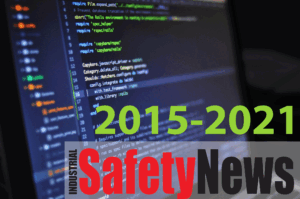Online criminal groups are exploiting the fear brought about by the novel coronavirus to target people and organisations

Although New Zealand has been quite successful at crushing the Covid-19 curve, the crisis is forcing individuals and businesses to embrace new practices such as remote working and social distancing .
Kiwis are more digitally connected as result of Covid-19. There has been a massive increase in the number of people shopping online and working remotely.
Attacks are increasing, both in scope and frequency. As authorities focus on the health and economic impact of the pandemic, cybercriminals have come up with ways to capitalise on the situation.
Organisations and their employees ought to take measures to mitigate risk as they shift to remote working to comply with social distancing rules.
According to a recent Barracuda Networks study, 40 percent of organisations in New Zealand had at least one data breach since shifting to remote working.
During the same period, 37 percent of employees encountered a Covid-19 themed phishing email.
These are some of the most common types of cyberattacks faced by individuals and businesses in New Zealand:
- Phishing: Hackers are using Covid-19 in phishing attacks to impersonate government ministries as well as popular brands in an attempt to mislead people. These emails contain malicious links that will download malware into your device when you click on them. There has been a spike in phishing attacks in New Zealand since early 2020.
- Ransomware: Cybercriminals are using ransomware attacks to target primarily public institutions, medical centres and hospitals. This type of attack holds your system data or network hostage until a ransom is paid. Institutions are more likely to pay up because they cannot afford to be locked out of their systems during a global pandemic.
- Malware: Besides ransomware, online criminals are using other types of malware to terrorise individuals and businesses during Covid-19. For instance, hackers are embedding different types of malicious software such as spyware and trojans in interactive Covid-19 websites and maps. There has been a significant increase in coronavirus-themed domains.
How to increase protection
There are several steps businesses and New Zealanders can take to mitigate these risks. These include:
- Use VPN *. A Virtual Private Network, also known as a VPN, provides a safe passage for your online traffic between your computer and the internet server. A VPN provides online privacy and anonymity and is particularly important when connected to public Wi-Fi when working remotely.
- Strong passwords. Having strong, unique passwords for all your online accounts is one of the most effective ways to keep the bad guys out. Also, consider enabling two-factor authentication on your online accounts for an extra layer of protection.
- Create a backup. Backup mission-critical data and make sure that it’s stored independently from your system on an external drive or the cloud. Be sure to confirm the validity of cloud backup.
- Update your system. Check your software and systems to make sure that they are up to date. Regular updates ensure that any vulnerabilities that attackers could abuse are patched before it’s too late.
Mathew Stern
Note: The links explaining the covid curve, remote working and VPN are to commercial websites



